Final Major Project
Digital media content containing any or all of text, graphics, audio, video and animation drawn from pre-existing sources, to create a new derivative work.
Digital mashups represent a new phase in the re-use of existing works to ease useage rather than asthetic style. The creation of digital media formats such as ASCII text, Redbook audio, JPEG images and MPEG video has made it far easier for mashup creators to create work.The world wide web enabled people to get data, mash it, and recreate and publish new work. Current widespread practices of creating digital mashups have raised significant questions of intellectual property and copyright, which have been addressed by Lawrence Lessig, and others. While questioning the law, mashups are also questioning the very act of creation. Are the artists creating when they use other individuals' work? How will artists prove their creative input?
Web or cloud computing based applications are a combination of separate parts brought together with the use of the open architecture of public Application Programming Interfaces API. For example, a mashup between Google Maps and Weather.com could be made available as an iphone application, where the content and context of that content are drawn from outside sources through the published API.
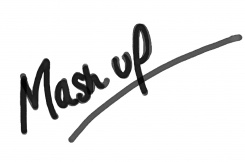
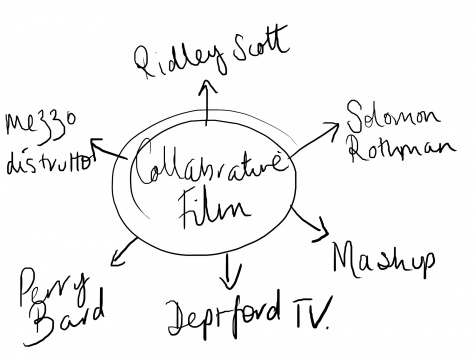
Life in a Day is a crowd sourced documentary by Ridley Scott. “Created entirely from footage uploaded by YouTube users, Life in a Day is a film first: exhilarating, moving and very, very funny... it is the story of our world. Told by us.” (National Geographic, on the life in a day website) It is an example of the reader creating, as well as reading the work. Life in a Day shows how collaboration becomes interactive and authorship is shared.
In recent years, in the digital era, a development has been growing in the creation of open source collaborative films. This growing medium of short films has changed the relationship between film maker and audience due to accessibility and economical advances in digital technology just as Marshall McLuhan suggested in his book, The Medium is the Massage in 1967.
Collaborative Film
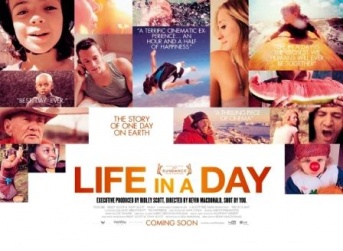
Movie Pals.org: Open Cinema Manifesto
The world of cinema is changing. Digital technology, online distribution, and the power of social media are fueling a revolution in the way we tell stories. You are a part of this revolution and an active player in deciding what movies, music, and art mean to you, how they're made and who profits.
Primary Beliefs and Tenets
Collaboration makes things better.
Individuals should be recognized and rewarded for their contributions
Teams of artists can jointly “own” works while still maintaining individual authorship.
Together we can make better movies for less money than any one of us could by ourselves.
Those who do the most work on a project should have the most say in the direction of that project. If votes are used, they should be weighted by participation (called a Meritocracy).
Any revenue earned from artistic creations should be split fairly with its creators. Most of the revenue should go directly to the people who did most of the work.
Artists should be empowered (not forced) to be as open with their work as they are comfortable.
Everyone has something to contribute; great movies are rarely the product of sole genius, but collections of talented individuals working together.
We will work with whatever resources we can obtain and are not afraid of failure. It may take many tries to make something worthwhile.
Stop wishing, stop the “what ifs”, stop critiquing, and start doing. When passionate people work together, anything is possible.
The Control
The Control wants to own everything. They believe quality is maintained by giving power to the elite, to the proven, or to those connected. Every yes decision a big risk. Every green light costs enormous amounts of money. In this world, every completed project is a rarity. In the land of film-making, people on the bottom clamor to have a chance to even get in the game.
To offset the enormous risk and financial burden, the Control reuses the same proven gimmicks until they no longer work. They exploit people as much as possible to increase profits. They tighten down access to the content and leverage each resource to its fullest. They stifle innovation in favor of status quo profits. They are slow to change anything until they absolutely have to or risk extinction.
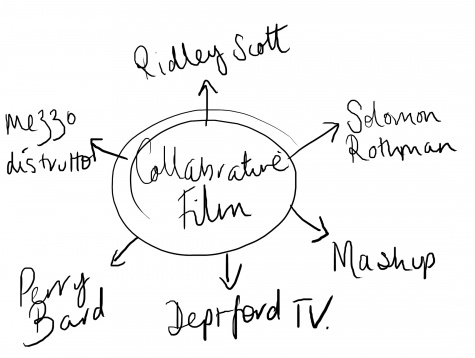
• Solomon Rothman is Currently leading the production of the crowd-driven open source series Mob Mentality
• Authored the Open Cinema Manifesto and launched a grass roots movement to enable audience participation and international collaboration in film making.
• Created web commercials for companies ranging in size from cottage industries to larger corporations.
• Wrote and directed “Jathia’s Wager” in 2009 a collaborative open source sci-fi film that was creation with an international collaboration with artists online.
• Wrote, directed and starred in “Boy Who Never Slept”, a full length open source movie released in 2006, which after its release online went on to garnish millions of views and international attention from both the mainstream and independent media.

Mezzo Moderno, Mezzo Distrutto (Half Modern, Half Destroyed) is a socially-engaged public art project by Lara Blazic. The project's online and installation concepts involve creating a hybrid work which will examine contemporary perceptions of space and collective creative process. The aim is for this work to culminate in a large-scale multi-projection installation in the public space of Gillett Square.
Mezzo Moderno, Mezzo Distrutto is concerned with how a wide cross-section of daily users, of the town centre and neighbourhood of Dalston, East London see and choose to interpret their urban environment as it goes through a period of unprecedented change. Visually, it invites participants' reflection on the quality of change in local urban and architectural design and whether it contributes to 'genius loci' (spirit of place).
This project asks can moving image open channels of communication of another level (away from entertainment and advertising); of inspiration, empowerment, and aspiration, developing our understanding of changes in urban environment today and sense of ownership of our surrounding.
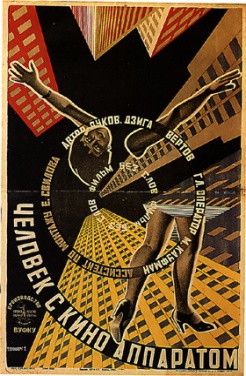
Man With a Movie Camera: The Global Remake is a participatory video shot by people around the world who are invited to record images interpreting the original script of Vertov’s Man With A Movie Camera and upload them to this site. Software developed specifically for this project archives, sequences and streams the submissions as a film. Anyone can upload footage. When the work streams your contribution becomes part of a worldwide montage, in Vertov’s terms the “decoding of life as it is”.
Since September 2005 Deptford.TV functions as an open, collaborative platform that allows artists, film-makers, researchers and participants of the local workshops to store, share, re-edit and redistribute their footage and projects. This raw material as well as edited media content is available on the Deptford.TV database under an open content license such as the Free Art License, the Creative Commons SA-BY License, and the GNU General Public License.
My experiments of Final Cut Film Editing. These are my Examples..... The last 2 were made with short clips filmed on my phone.
As groups we re edited the films therfore creating collaborative films.
HOME
CLICK HERE